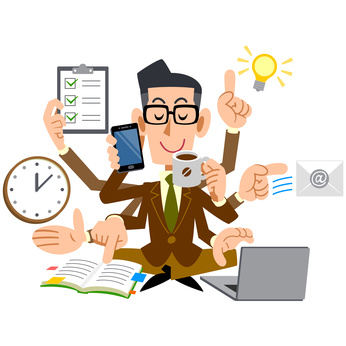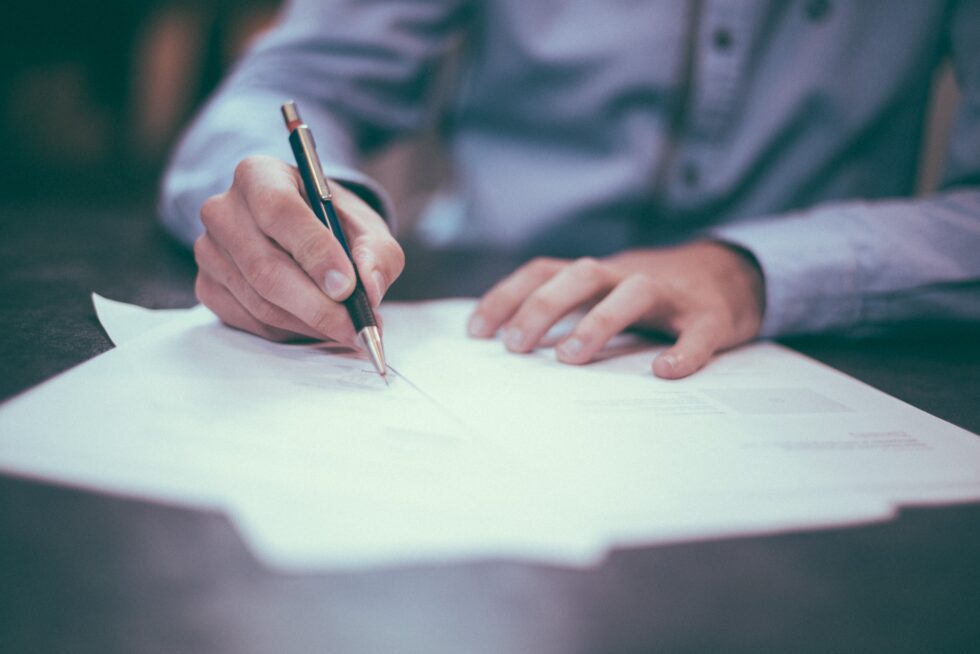Hello guys, Welcome to today’s blog today we are going to talk about Multitasking and Its effect on your productivity.
At the most basic level, this may involve executing multiple perceptual at the same time, such as moving your attention to different tasks.
At a more complex level, this may involve interleaving the steps of many complex tasks.
WHAT’S IN IT
Why Most Of Us Think That Multitasking Is More Efficient

Multitasking is something we all do. You may even be doing it now, Since the word first
emerged in the 1960s, it has gradually risen to prominence, especially as the computer age gave
us ever more opportunities to do multiple things at once.
As the Internet came into existence, these opportunities have mushroomed, with so many of us
having multiple tabs open in our browser as we check our emails, Twitter feed, maybe some
work interspersed with watching dog videos on Reddit.
The thing is that multitasking is generally not good for our productivity, as our attention gets
divided over multiple things and tasks and we end up doing none of them particularly well.
This much is pretty well established, and yet wrenching ourselves free of the various distractions
we face at work can be incredibly difficult.
How Multitasking Impacting Your Productivity?

When it comes to productivity, we always hear that we have to focus on the key at a time. While
this statement is true, we must understand that in order to achieve optimum focus, we also need to know how our brain performs in terms of its cognitive abilities. Once we recognised this, we can easily train our brain to stay focused and productive amidst many distractions.
In their research, When human beings are paying attention to something, that information is
processed in a continuous manner.
Our brains select useful information and ignore the rest So that we can focus on a single
work or a few items in order to make appropriate responses in the world,” says Kyle Mathewson.
However, while our brain is doing its job to help us focus in an environment full of distractions, we are also doing some activities that can kill our productivity and hamper our brain performance.
Does Multitasking Slowing You Down?
It doesn’t matter how much we practice multitasking, multitasking is not going to make you
more productive, Why? Because it’s a myth, let me explain.
There is no such thing as multitasking. Studies show that the brain can only perform one task at a time. The people who claim to be good multitaskers are just good at switching between tasks.
Alternatively, are they? It seems that quick switchers aren’t good at switching. In fact, more
often than not. they’re just doing two tasks poorly. Compared to doing those two tasks separately.
One big problem with multitasking is that it takes longer – every time we try to get back into the task at hand we have to re-shift all our focus, which uses up precious energy.
As has been the case in many accidents on the roads with drivers switching focus, This is why
using your phone while driving is banned. Most businesses suffer from not teaching this to
employees that seem busy and feel busy. Imagine the results that we would accomplish if
everyone stopped trying to multitask. The optimum state for productivity is the ‘flow state’ or
being in the ‘zone’, which means concentrating on one thing at a time with complete focused
attention.
Imagine a top athlete on top of their game.
What Science Says About Multitasking

A recent study found that people who are frequent doing multitasking had recorded reductions in
their brains’ grey matter—specifically, in areas related to cognitive control and the regulation of
motivation and emotion. The people who do multitasking at home over the seven-day period and
found that the more people multitasked, the more likely they were to exhibit behavioural
distractibility.
Current assumptions are that by responding to so many distractions. Andone loses the ability to
distinguish between important and unimportant interruptions. A study of multitasking in the
classroom found that students who do multitasking on their computers during a lecture scored
lower on their exams as did classmates who were in direct view of them. This is why we hate
other people texting on their phones when we’re at the movies. It’s distracting even when we’re
not the ones doing the texting.
Multitasking is neither a good thing nor a bad thing……..
One thing that we’ve been thinking continuously about multitasking and it’s effects on our
productivity. There’s a fair bit of research that basically says that. The human brain just isn’t
terribly well optimized for doing more than one thing at the same time. Unfortunately, it’s often
not something that seems like much of a choice.
So many things have a “right now” urgency and seem to require immediate attention.
Additionally, most people report that they feel more productive at the time when we’re doing
several things at once. We’re interested in figuring this out for ourselves, with our own data.
We’re playing around with some different ways to look at RescueTime data to get a better handle on it. And we’re seeing some things that look pretty interesting.
We’re still trying to figure out how much are doing multitasking? Metric but what we have so far suggests that every person on our team is significantly more productive. When they focus more
on a single task, rather than trying to juggle. Its all depends upon us how we are going to manage the several things at once.
7 – Tips If Multitasking Become Necessary For You

1. Is Multitasking Necessary:
You’re an admin professional so you will always have a lot of work on your plate. Taking any
shortcuts to speed up your work definitely helps, but you need to first ask yourself if
multitasking is necessary. Will it help you to get more done in less time, without affecting the
quality of your work? Only attempt multi-tasking if it helps you to become more productive, not
less effective.
2. Set up a Multitask Plan and Goals:
Okay, so you’ve decided that you want to multitask your work in order to become more
productive. The first thing you need to do is set a ‘multitask’ work plan. Diving right into your
work without any plan or structure is a bad idea. Without any plan, you could easily lose focus
and not complete your work, which will just cause you more stress. Successful multi-tasking
needs a good plan. A good tip is to group tasks that are compatible with each other. From there
you can set your goals for each task, like ‘what do you want to achieve?’ and ‘when must your
tasks be completed by?’
3. Don’t lose Focus:
Multitasking only works properly if you keep your focus. Managing multiple tasks is demanding
and you can very easily lose track of them if you don’t manage everything properly. Along with
grouping compatible tasks together, it’s also a good idea to list each task by its level of urgency
or priority. Prioritizing tasks based on their urgency will help you to not ease some of the
pressure on your shoulders and most importantly keep your focus.
4. Set aside your Time for Intensive Tasks and Routine Tasks:
Some of your tasks are repetitive, day-to-day tasks and others are complex and high priority
tasks. Daily tasks are the easiest and least stressful of your responsibilities. These are the tasks
that you can easily multitask, as you can devote a certain time of the day to them. For example,
you could dedicate the first and last hour every day to getting through your emails and
completing basic admin.
Whilst your emails are your priority, you will also have enough time to get through your other
daily routine admin tasks so that you ‘kill two birds with one stone’. Intensive tasks and projects
are a different story. These tasks need a specific time allocation, but depending on their urgency
and demands, it’s wise to rather focus on them individually. Especially, if it’s an event or a
project you need to assist your boss with. Complex tasks need your full attention, so the time and
energy you put into them shouldn’t ever be compromised.
5. Multitasking is just like Juggling:
An effective way to multi-task is to work on one thing at a time but alternate between them.
Jugglers are the perfect example. Whilst they might have many objects in the air, they always
manipulate only one at a time. The easier and repetitive tasks that you do on a daily routine are
much easier to manipulate which means that you should be able to switch between each task with
ease. If you find yourself struggling to ‘juggle’ your tasks, you could set a timer or an alarm to
go off at certain time intervals to remind you to switch tasks.
6. Manage Work Distractions:
No one can plan for interruptions or an unexpected event. You also can’t predict how many
times your phone will ring, but we all have our days where things come up at the last minute that
need your urgent attention. The result, your perfect work plan for the day doesn’t quite go the
way you expected it to. First, stay calm. Getting yourself into a spin will just demotivate you.
Secondly, in your plan, you should set time constraints for different tasks, which should include
a contingency plan if there are interruptions in the day.
7. Use all Available Resources:
In the digital age of the internet and apps, administrative professionals now have several useful
resources at their disposal. Apps like Evernote, Dropbox, and Handle can easily help you with
setting task priorities, multitasking, and general time management at work. Even something as
simple as your Outlook calendar can help you tremendously with scheduling your tasks and
keeping you on your toes. Multitasking is all about improving your productivity, and technology
can help you to make your work more manageable.
Conclusion
So here comes the end of our blog today we have discussed multitasking what are the
Essential elements of multitasking sent or not anti of learnt a lot about the impacts of multitasking
on productivity, I think this blog has helped you a lot regarding the slowing down your process
what is the science behind multitasking and if is it necessary to how you can use multitasking at
your best.
In future, we are going to take more of the topics for you guys as it is very useful for the day today
learning about these topics and applying in our life
Also you can read our blog on To-Do Lists -The Key to Efficiency
FAQ’s
Multitasking is a skill where you manage multiple tasks at a time and ultimately call the task
within the given time with full efficiency.
Your boss just assigned you to complete the project work and you have to complete the project
work of your studies at the same day. Same task at same time with the same deadline and you
complete it all with the help of multitasking.
I am a skilled person with a good knowledge who is able to manage multiple things at a time and
complete it with the given duration.
I think it’s a skill which helps you to manage the work in a qualitative approach with the given
duration and deadline.
Yes if you can manage this skills manage different task at a time then it’s a strength for and you
can show it to different people if you are good at handling things.
You have to set the priority and distinguish between urgent and then private tries the work and
complete it at the same time given deadline



